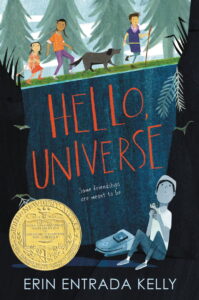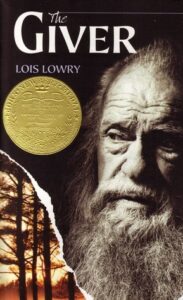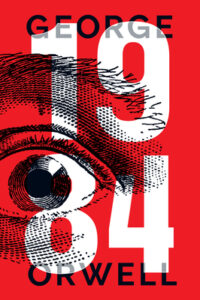Englist’s mission is to prepare students for a future in English-language academic and career settings. This can be a difficult bridge to cross. Most students who enter international programs or attend university overseas are shocked to find that grammar and vocabulary practice, or high TOEFL or GEPT scores, did not prepare them for the critical thinking, analysis, and higher-order reasoning skills required in advanced Western classrooms.
In other words, Englist hopes to give all learners the opportunity to engage in the depth of thinking and skills-focused types of learning advocated by quality schools around the world.
Furthermore, Englist works as a tremendous supplement for students who have already transitioned to international or English-language classrooms, but are finding it difficult to keep up.
Englist helps students not only gain proficiency and confidence in English-language academic settings, but also ensures students possess the complex and sometimes hard-to-identify skills required for success in an increasingly global world.
Here is how we do it:
The path to growth at Englist
Englist has a clear path for student development. Students begin at the Fundamentals levels (F1, F2, and F3), which are geared toward students at American elementary levels.
At the junior high level, students usually are ready for “Writing Essentials”, where they learn the essentials of academic writing and thinking.
At the upper levels of junior high and early levels of high school, learners are prepared to take the “Basic Essay Writing” class, where they are introduced to essay composition as most people understand it.
Finally, once students have successfully completed the Basic Essay Writing class, they are able to join Englist’s more advanced offerings.
Grading
At Englist, grading is a matter of student effort, attention, and progress.
We do not score students according to writing ability. The problem with scores is that when you put a score on a student’s assignment or ability, they obsess over the number rather than focus on what they can improve. Specific feedback is much more productive than any grade.
Especially at the Fundamentals level, student assignments do not receive a letter or number grade. What’s important at this level is that students get accustomed to not only writing on a consistent basis, but rewriting and correcting their work as well. Rewriting is a critical step in improving as a writer. What correcting and rewriting do is force students to acknowledge problems with clarity, structure, and grammar conventions as well as learn new ways to express themselves. When revising a student’s work, our teachers focus on language development while doing their best to preserve the student’s original ideas. We have found this to be the ideal way for students to develop their writing skills because it exposes them to new and grammatically correct ways of expressing their ideas without the added pressure of a formal grading system.
When students get to Writing Essentials and beyond, grades are based on student effort on an assignment and how well they followed directions. All assignment scores are compiled at the end of the term, and students are given a final grade. However, scores and grades are only a minor part of the feedback process. Teachers individually proofread each assignment and test, and offer specific feedback for where students can improve and where they are doing well.
What we don’t do
Englist is not an English school. Englist is a program that offers English Language Arts (ELA) and academic writing classes that are conducted in English.
Students in schools in North America do not spend most of their time poring over vocabulary lists, grammar patterns, and superficial cultural factoids or learning “business English”. Unfortunately, grammar, vocabulary, and workbooks are what many parents seem to expect. If that is what you are looking for, there are plenty of cram schools that can help you.
However, what Englist offers is more effective than the more “traditional” ESL approach.
How we teach
What Englist focuses on is content-based instruction (CBI) and linguistic immersion.
We create our own materials that appeal to our own students, including writing our own textbooks.
We use culturally relevant materials to bring topics to life.
Rather than spending lots of time on vocabulary and grammar, we see that vocabulary is best acquired through lots and lots of reading of high-quality, thought-provoking stories and books. We see that grammar is mastered through usage, especially through a ton of writing and rewriting. Then, because our materials and approach are meant to appeal to students’ actual lives, students end up learning more vocabulary and grammar than they do in programs with lots of quizzes and workbooks.
Not only does our experience prove our methods are more useful, but academic research overwhelmingly supports their use.
Englist focuses on developing student knowledge bases by having them do lots of reading and writing over a long period of time, which in turn leads to the development of critical cognitive skills. These include:
- Active reading
- Comprehension
- Critical thinking
- Analysis
- Problem-solving
- Logic and reasoning
- Clarity and structure of ideas
- Depth of thought
Fundamentals (Grades 1-6)
Elementary-level students start in the Fundamentals level. While Englist has a reputation as a writing program, at the Fundamentals level the focus is on building reading comprehension and active reading skills.
The best writers are also the best readers, and without a heavy reading focus, students are unable to attain the foundational skills they need to be strong critical thinkers and writers. Furthermore, reading instruction is foundational to every other subject students will encounter, meaning building strong reading skills is imperative to future success.
At this level, we also practice fundamental writing skills like sentence structure, grammar and mechanics, as well as getting students to relate their writing to reading.
Students who successfully complete the Fundamentals levels at Englist are prepared for the next step of our academic writing programs and upper-level elementary courses.
 Example Fundamentals 3 writing assignment: Paragraph practice
Example Fundamentals 3 writing assignment: Paragraph practice
-
- By the time students reach Fundamentals 3, they are writing one to two short paragraphs every week. At this level, students begin learning basic paragraph structure, as well as how to support their ideas with clear details and explanations. Students learn basic structural concepts like topic sentences and supporting detail, and begin attempting to link complex ideas to create a more coherent whole.
Example Fundamentals 3 in-class novel: Hello, Universe
-
- Hello, Universe is a fun novel for students to read because of its diverse and relatable ensemble of characters. The author’s style of storytelling allows students to step into the shoes of different characters and helps them view a situation from different perspectives. The novel is full of foreshadowing and subtle humor that rewards students for reading closely.
Student example: Audrey was a student who attended a famous private Chinese language school in Taipei and supplemented English learning at an after school program. Englist helped Audrey to avoid needing to enroll in an international program so she could continue in her normal language program.
-
- Favorite Character: The prompt for this assignment is related to an in-class novel: Hello, Universe by Erin Entrada Kelly. Audrey was tasked with writing a short paragraph discussing her favorite character up to that point and to explain why this character was her favorite. She did well on her assignment and made few errors. Since there were no glaring errors in her mechanics, we challenged Audrey by asking her to support her first statement with evidence from the novel. This assignment helps students build the habit of using supporting details to support ideas and encourage critical thinking.
- Making inferences: In this lesson, we learned about how students can make inferences about a character’s personality by analyzing their thoughts and actions. Audrey was asked to choose two adjectives that describe one of the characters from the story and to provide evidence from the text to support her inferences. Her thoughts are well-organized and there was no need for Audrey to elaborate further. At this point, she has developed the habit of explaining her thoughts instead of merely stating them. Moreover, you can see that she has shaken the habit of ending her paragraphs with a direct question to the reader. This type of concluding sentence is fine for younger writers, but it doesn’t add anything to a paragraph. Her concluding sentence for this paragraph is simple, yet it does a good job of restating her main ideas. Audrey still has room for improvement, but she is showing gradual progress.
Writing Essentials (Grades 7-8)
The next level up, and the first level of academic writing is Writing Essentials. This class is targeted at the junior high level, and transitions students from ESL and ELA learners to students engaging in the thinking processes required for academic writing.
Here students are introduced to the essential conventions of Western academic thinking, including tying sentences together to develop cohesive and on-topic paragraphs, as well as engaging in different forms of writing, ranging from persuasive to descriptive to creative. There is still a large focus on reading and literary analysis (as there is at all levels), as students are tasked with both reading novels as a class and independent reading tasks they must respond to.
Students who successfully complete the Writing Essentials course are ready for junior high level ELA programming.
Example Writing Essentials writing assignment: Paragraph practice
-
- In Writing Essentials, one of the main goals is getting students to write strong paragraphs of various formats, and ultimately multiple paragraphs that work together to argue, explain, or entertain. In the paragraph practice assignment, students learn the different parts of academic paragraphs and how to structure ideas in a way that makes them more clear to a reader.
 Example Writing Essentials in-class novel: The Giver
Example Writing Essentials in-class novel: The Giver
-
- Students at Englist love The Giver, with many kids citing it as their favorite book. This novel is an excellent read and teaching tool. It introduces students to complex philosophical and social ideas that they have yet to consider, and asks them to apply their understanding of the world to what they are reading.
Student example: Nicole was a student at a private international school in Taipei City. She had previously attended public school in Taipei as well as an after-school English program. Englist helped her transition to her new school and assisted in preparing her for college overseas.
-
- Thinking about stories and active reading: Nicole took a few semesters of Writing Essentials to make sure she was ready to move up to the Basic Essay writing program, and one of her last assignments in her first semester was this one. Nicole is displaying an ability to write about texts she has read, summarization skills, predictive ability, and the ability to compare and contrast.
- Paragraph practice, rewrites: In Nicole’s second semester of Writing Essentials, you can see her growth in terms of command of language and ability to express ideas in paragraph format. This is simply a matter of practice and increasing awareness of what constitutes structural clarity, as well as an awareness of the conventions of academic writing standards.
Basic Essay Writing (Grades 8-10)
Basic Essay Writing is Englist’s next level, and the beginning of academic writing as most teachers would acknowledge it.
Students focus heavily on logical structure and clarity in this course, and they are taught a system for essay writing called the Simple Persuasive Essay (SPE), developed by Englist. Students learn how to construct their ideas according to this system, and then learn how to leave this structure behind once they have strengthened their logical thinking and organizational skills.
Students in this course use the Basic Essay Writing textbook published by Englist, and continue to read novels as a class.
Students who successfully complete the Basic Essay Writing course are ready for high school level ELA and writing courses.
Example Basic Essay Writing writing assignment: Write a Simple Persuasive Essay
-
- As mentioned, one tool Englist uses to teach students how to approach the academic writing process is the Simple Persuasive Essay. Students complete this assignment early in the year as it offers them a glimpse of the type of work they will be expected to complete, as well as help them see the overarching road-map for where they are headed as writers.
 Example Basic Essay Writing in-class novel: The Outsiders
Example Basic Essay Writing in-class novel: The Outsiders
-
- The Outsiders is always popular with Englist students. Strangely, students come to identify with the characters and their struggles in the novel. While the book is set in 1950s Oklahoma and written from the perspective of working-class hoodlums, the themes and conflicts are complex, quintessentially teenaged, and felt by teens and young adults regardless of their backgrounds.
Student example: Zoe is a student who attended public schools in Taipei from kindergarten through high school. She supplemented her English learning with after school English programs before transitioning to Englist, where she made the jump from ESL learning to ELA and academic writing.
-
- Simple Persuasive Essay: In her SPE, Zoe displays command of the critical thinking skills learned in the Writing Essentials and Basic Essay writing classes, especially the ability to structure her reasoning in a way the audience will be able to understand. However, she is still developing the ability to link ideas and to forcefully state her claims and evidence.
- Persuasive Essay: Once Zoe has learned to shed the SPE pattern structure, she is able to write a more complex and fluent essay that displays strong clarity and a solid argument. She also has progressed to more fluently linking concepts, meaning the flow of the essay allows readers to focus on content rather than puzzling out meaning.
Extended Practice (Grades 9-12)
Beyond the Basic Essay Writing class are the rest of Englist’s offerings.
These include Taipei Teen Tribune, a program that operates on an invite-only basis to students who show strong potential as critical thinkers and engaged writers. In this class students are empowered to write articles about topics of their choosing. This allows them to leave some of the academic conventions of writing behind in favor of pursuing their own ideas and styles.
We also offer extended writing courses where students learn how to put together research essays and engage in more comprehensive literary analysis.
Furthermore, Englist offers experimental ELA courses and programs in public speaking and debate.
Students who complete the more advanced offerings at Englist are prepared for honors-level or AP courses in international high schools.
Example extended practice writing assignment: Research essay
-
- In Englist’s more advanced classes, students go beyond the basics of essay writing and delve into more complex thinking processes, content, and writing practices. Englist occasionally offers a more advanced writing class, which requires students to compose a research essay. They select their own topic of research and find multiple sources to analyze and synthesize into a complete research project. Furthermore, students are tasked with presenting their findings to their class.
 Example extended practice in-class novel: Nineteen Eighty-Four
Example extended practice in-class novel: Nineteen Eighty-Four
-
- George Orwell’s most famous novel is a classic in high schools across the English-speaking world. Nineteen Eighty-Four is a challenge for Englist students that introduces them to complex geopolitical issues of the past and present, as well as major philosophical considerations they likely are encountering for the first time.
Student progress: Kate was a student at a top private school in Taipei in their “international” program. In elementary school she was a student in the Chinese language program and supplemented her English at an after-school ESL program. In junior high she transitioned to the international division of her school. In junior high, she also began at Englist.
-
- Short Story: In her short story, an early assignment in her writing class, Kate displays command of narrative structure and clarity that she learned in the Basic Essay Writing class, in addition to advanced style developed through multiple terms of rigorous practice and rewriting. She also employs knowledge of an advanced composition skill by applying tone to her work.
- Research Essay: At the end of Kate’s class, she was tasked with researching a topic of her choice, developing a thesis about that topic, and then writing an essay to support her view with her research. During this project, Kate was tasked with finding her own sources of information, assessing their validity, and then synthesizing and presenting the information she found into a well-written and engaging argument supporting her ideas. She also prepared a presentation and gave a lecture to the class on her topic.
Disclaimer: students are likely less advanced than you think
Englist teachers and administrative staff often encounter parents and students who think they can attend a class that they simply are not yet ready for. “My daughter will be in your most advanced class,” a mother might tell us. More often than not, parents and students are aiming a little higher than is accurate.
Students may have strong English skills, but English skills are not the same as academic writing skills, or reasoning skills, or critical thinking and analysis skills.
Furthermore, many parents and students assume “good writing” is a high volume of writing, or writing that sounds academic and fancy and like a textbook with lots of big words.
Both of these assumptions are deeply incorrect.
The length of writing does not matter. Flowery vocabulary does not matter. As a matter of fact, writing that is too long is often bad, as is writing that is trying too hard to sound like a textbook.
In other words, unless you have been trained as a writer, it can be hard to determine what exactly makes good writing good.
So, before you decide what class you (or your child) should be in, come into Englist for an assessment and let our trained staff help guide you to the course that works best for you.
